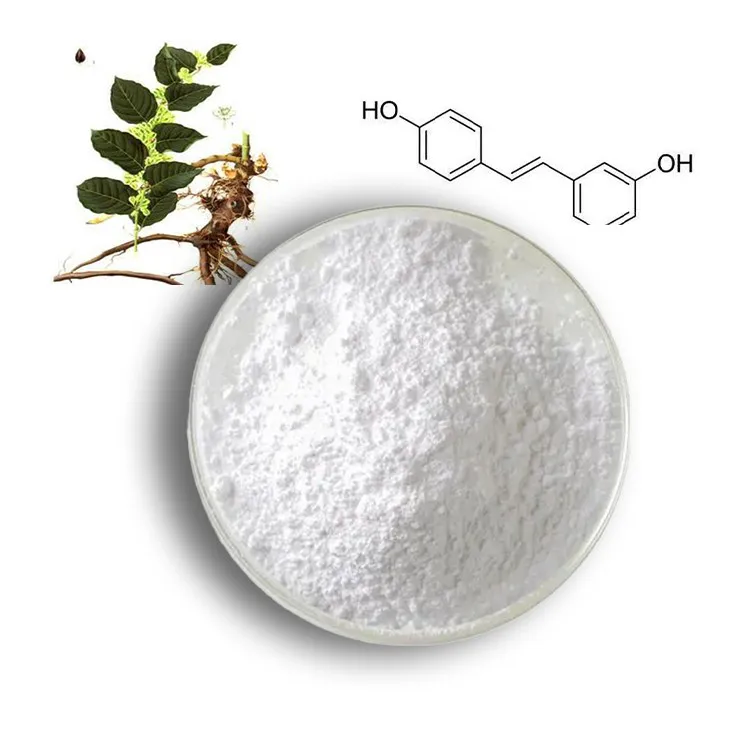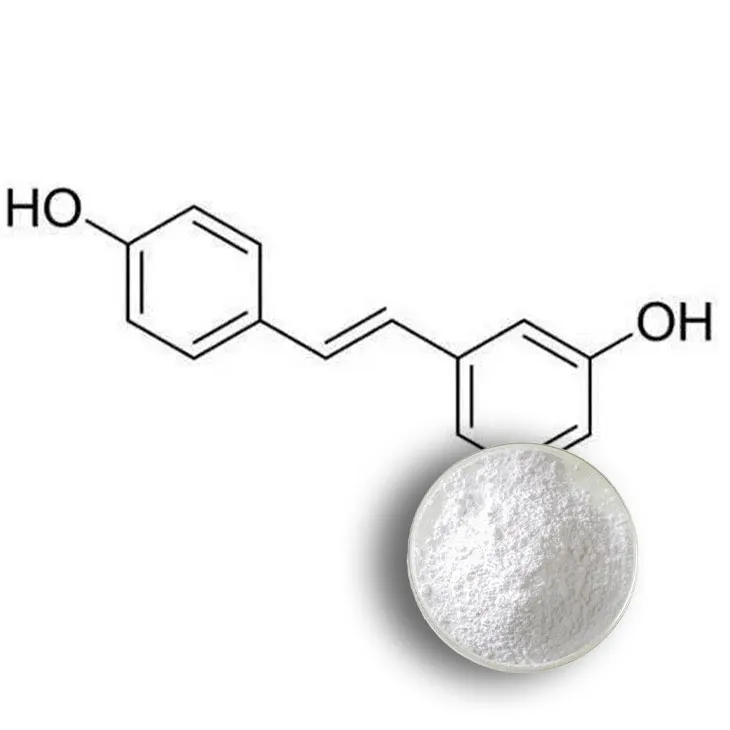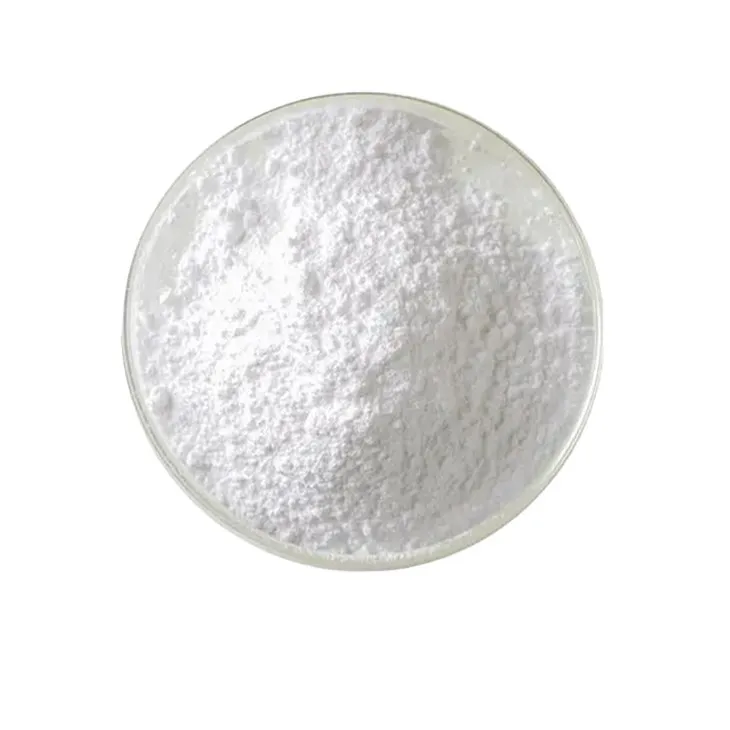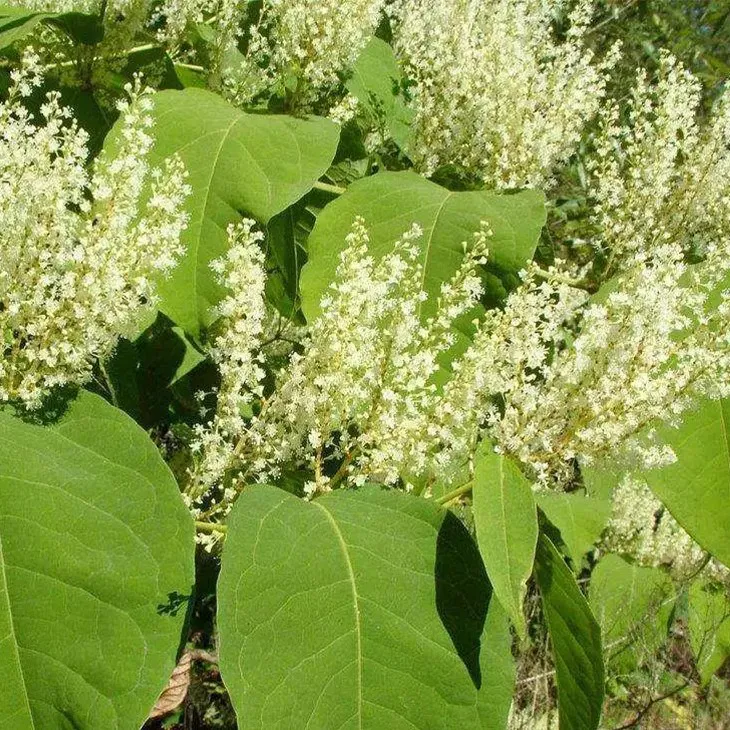- 0086-571-85302990
- sales@greenskybio.com
Five Effects of Resveratrol Extract + Dosage, Side Effects
2024-11-11

1. Introduction to Resveratrol extract
Resveratrol extract, particularly the white Resveratrol extract, has been a subject of great interest in recent years. It is a natural compound found in various plants, most notably in grapes, berries, and peanuts. This polyphenol has shown a wide range of potential health benefits, which we will explore in detail below.

2. Five Key Effects of Resveratrol Extract
2.1 Anti - Inflammatory Effect
Inflammation is a natural response of the body's immune system, but chronic inflammation can lead to various diseases. Resveratrol has been shown to possess anti - inflammatory properties. It can inhibit the production of pro - inflammatory cytokines, such as interleukin - 6 (IL - 6) and tumor necrosis factor - alpha (TNF - α). By doing so, it helps to reduce inflammation in the body. For example, in some studies on animal models of arthritis, resveratrol supplementation led to a reduction in joint swelling and pain, indicating its potential in treating inflammatory joint diseases.
2.2 Antioxidant Activity
Resveratrol is a powerful antioxidant. It can scavenge free radicals in the body, which are unstable molecules that can cause damage to cells, DNA, and proteins. Free radicals are produced as a by - product of normal cellular metabolism, but they can also be generated by environmental factors such as pollution, radiation, and smoking. Resveratrol's antioxidant activity helps to neutralize these free radicals, thereby protecting the body from oxidative stress. This may contribute to a reduced risk of chronic diseases such as cancer, heart disease, and neurodegenerative disorders.
2.3 Cardiovascular Benefits
There are several ways in which resveratrol can benefit the cardiovascular system. Firstly, it may help to lower blood pressure. Some studies have shown that resveratrol can relax blood vessels, allowing for better blood flow and reduced pressure on the arterial walls. Secondly, it has been found to have a positive effect on cholesterol levels. Resveratrol can increase high - density lipoprotein (HDL) cholesterol, often referred to as "good" cholesterol, while also reducing low - density lipoprotein (LDL) cholesterol, the "bad" cholesterol. Additionally, resveratrol may help to prevent blood clot formation, which can reduce the risk of heart attacks and strokes.
2.4 Anti - Cancer Potential
While more research is needed, resveratrol has shown some promising anti - cancer properties. It can interfere with the growth and spread of cancer cells in several ways. For instance, resveratrol may induce apoptosis, or programmed cell death, in cancer cells. It can also inhibit angiogenesis, the process by which tumors develop their own blood supply. By blocking angiogenesis, resveratrol can starve cancer cells of the nutrients and oxygen they need to grow and survive. Some in - vitro and in - vivo studies have demonstrated its potential against various types of cancer, including breast, prostate, and colon cancer.
2.5 Anti - Aging Effects
Resveratrol has been associated with anti - aging effects. It may act on a cellular level to extend the lifespan of cells. One of the mechanisms through which it may achieve this is by activating sirtuins, a group of proteins that are involved in cellular repair, metabolism, and stress resistance. By activating sirtuins, resveratrol can help cells to function better and may slow down the aging process. Some studies in model organisms such as yeast, worms, and mice have shown an increase in lifespan with resveratrol supplementation, although the translation of these results to humans is still being investigated.

3. Dosage of Resveratrol Extract
The appropriate dosage of resveratrol extract can vary depending on several factors, including the form of the extract (e.g., capsule, powder), the intended use, and individual differences.
- For general health maintenance, a daily dose of 50 - 100 mg of resveratrol may be sufficient. This can be obtained from dietary sources or supplements.
- When using resveratrol for specific health conditions, such as its anti - inflammatory or antioxidant effects, higher doses may be required. Some studies have used doses ranging from 200 - 500 mg per day, but these should be used under the supervision of a healthcare professional.
- It's important to note that excessive intake of resveratrol may not necessarily lead to greater benefits and may potentially cause adverse effects. Therefore, it's crucial to follow the recommended dosage guidelines.

4. Side Effects of Resveratrol Extract
While resveratrol is generally considered safe for most people when taken in appropriate doses, there are some potential side effects to be aware of.
- Digestive Issues: Some people may experience digestive problems such as nausea, vomiting, diarrhea, or abdominal discomfort when taking resveratrol supplements. These symptoms are more likely to occur with higher doses or in individuals with sensitive stomachs.
- Interactions with Medications: Resveratrol may interact with certain medications. For example, it may enhance the effects of blood - thinning medications, increasing the risk of bleeding. It can also interact with some drugs that are metabolized by the liver, potentially affecting their efficacy or safety. Therefore, if you are taking any medications, it's important to consult your healthcare provider before starting resveratrol supplementation.
- Hormonal Effects: There is some concern that resveratrol may have hormonal effects, particularly in relation to estrogen. In high doses, it may mimic the effects of estrogen in the body, which could be a problem for individuals with hormone - sensitive conditions such as breast cancer. However, more research is needed to fully understand these potential hormonal interactions.

5. Conclusion
Resveratrol extract offers a range of potential health benefits, including anti - inflammatory, antioxidant, cardiovascular, anti - cancer, and anti - aging effects. However, it's important to use it in the appropriate dosage to maximize benefits and minimize side effects. As with any supplement, it's advisable to consult a healthcare professional before starting resveratrol supplementation, especially if you have any pre - existing health conditions or are taking medications.
FAQ:
What are the five effects of resveratrol extract?
Resveratrol extract has antioxidant, anti - inflammatory, anti - aging, cardioprotective, and potential anticancer effects. Antioxidant properties help combat free radicals in the body. Anti - inflammatory effects can reduce inflammation at the cellular level. The anti - aging effect may be related to its impact on cellular health and longevity. Cardioprotective benefits include improving heart health by various mechanisms. And its potential anticancer properties are being studied for its role in inhibiting cancer cell growth and spread.
What is the recommended dosage of resveratrol extract?
The appropriate dosage of resveratrol extract can vary depending on factors such as age, health condition, and the purpose of use. Generally, for general health maintenance, doses in the range of 100 - 250 mg per day are often considered. However, for specific therapeutic purposes or under the guidance of a healthcare professional, the dosage may be adjusted. It's important to note that high - dose resveratrol supplementation may carry potential risks and should be used with caution.
What are the possible side effects of resveratrol extract?
Some possible side effects of resveratrol extract may include digestive issues such as diarrhea, nausea, and abdominal discomfort, especially when taken in high doses. It may also interact with certain medications, so it's crucial to inform your doctor if you are taking resveratrol extract while on other medications. Additionally, there may be individual sensitivities to resveratrol, which could lead to allergic reactions in some cases.
How does resveratrol extract achieve its antioxidant effect?
Resveratrol extract achieves its antioxidant effect by donating electrons to free radicals. Free radicals are unstable molecules that can cause damage to cells, DNA, and other biological molecules in the body. Resveratrol can neutralize these free radicals by providing the extra electrons they need to become stable, thereby reducing oxidative stress and protecting cells from damage.
Can resveratrol extract be used for skin health?
Yes, resveratrol extract can be used for skin health. Its antioxidant and anti - inflammatory properties can help protect the skin from damage caused by environmental factors such as UV radiation and pollution. It may also contribute to reducing signs of aging, such as wrinkles and fine lines, by promoting collagen production and protecting skin cells from oxidative stress.
Related literature
- Resveratrol: A Review of Its Anti - aging and Disease - Preventing Properties"
- "The Role of Resveratrol in Cardiovascular Health: A Comprehensive Review"
- "Resveratrol and Cancer: Current Knowledge and Future Perspectives"
- ▶ Hesperidin
- ▶ Citrus Bioflavonoids
- ▶ Plant Extract
- ▶ lycopene
- ▶ Diosmin
- ▶ Grape seed extract
- ▶ Sea buckthorn Juice Powder
- ▶ Fruit Juice Powder
- ▶ Hops Extract
- ▶ Artichoke Extract
- ▶ Mushroom extract
- ▶ Astaxanthin
- ▶ Green Tea Extract
- ▶ Curcumin
- ▶ Horse Chestnut Extract
- ▶ Other Product
- ▶ Boswellia Serrata Extract
- ▶ Resveratrol
- ▶ Marigold Extract
- ▶ Grape Leaf Extract
- ▶ New Product
- ▶ Aminolevulinic acid
- ▶ Cranberry Extract
- ▶ Red Yeast Rice
- ▶ Red Wine Extract
-
Garcinia Cambogia Extract
2024-11-11
-
Alisma Extract
2024-11-11
-
Black Rice Extract
2024-11-11
-
Tinospora cordifolia extract
2024-11-11
-
Licorice Root Extract Powder
2024-11-11
-
Konjac Powder
2024-11-11
-
Artichoke Extract
2024-11-11
-
Pomegranate Extract
2024-11-11
-
Black Pepper Extract
2024-11-11
-
Dan Shen Root Extract/Salvia Root Extract
2024-11-11





















